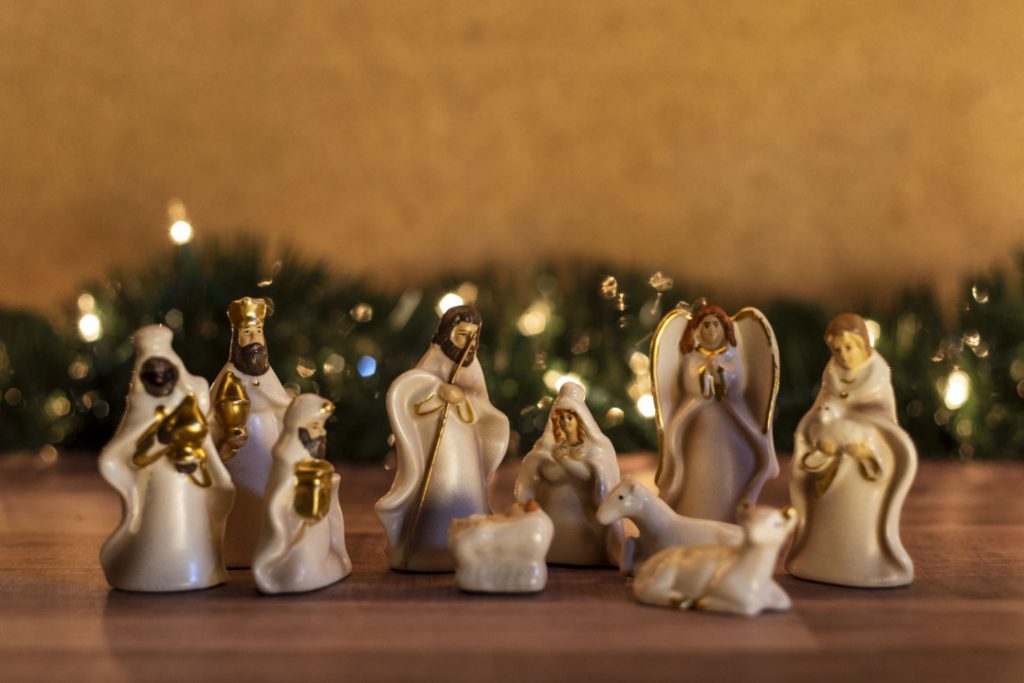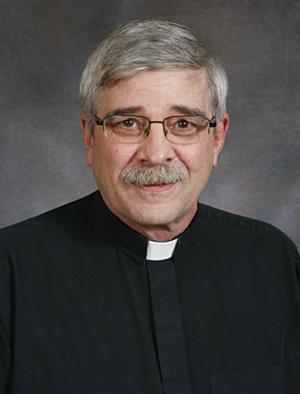Singing the Angels’ Christmas Song

by Timothy Teuscher
For centuries, the Christmas song of the angels has sounded forth week after week in the liturgy of Christ’s church: “Glory to God in the highest, and peace to His people on earth” (Luke 2:14). These words from the account of our Lord’s birth begin the canticle or hymn of praise known as the Gloria in Excelsis (Latin for “Glory in the Highest”). But why do we sing this Christmas song of the angels throughout the year?
Now, it may sound strange to say that we observe Christmas year round. And yet, that is precisely what we are doing when we sing the Gloria in Excelsis. Just as Christmas celebrates the coming of God in the flesh for our salvation from sin and death, so that is also what we celebrate every week throughout the year as our Lord comes to us in His holy Word and in the blessed Sacrament. No wonder that the Christmas song of the angels has also become our hymn of praise to God.
Now, it may sound strange to say that we observe Christmas year round. And yet, that is precisely what we are doing when we sing the Gloria in Excelsis.
The shepherds, having heard the angel’s proclamation of the birth of the Saviour and having seen Him themselves, “returned, glorifying and praising God for all they had heard and seen, as it had been told them”(Luke 2:20). So too we now do the same: “We worship You, we give You thanks, we praise You for Your glory.”
The Gloria continues with a confession of faith in Christ, “the only Son of the Father,” focusing especially on His saving work as the Lamb of God: “You take away the sin of the world.” And what clearer expression of the central truth of the Christian faith, of Christmas, is there than that? This is precisely what the angel announced to the shepherds when Jesus was born and what is still proclaimed to us today: “For unto you is born this day in the city of David a Saviour, who is Christ the Lord” (Luke 2:11).
The Gloria then concludes as it began with another joyful expression of praise and doxology to the Holy Trinity: “You alone are the Holy One, You alone are the Lord, You alone are the Most High, Jesus Christ, with the Holy Spirit, in the glory of God the Father.”
Some might consider the Gloria old-fashioned and out-of-step with our so-called sophisticated age and time. That is not surprising. After all, what the Gloria proclaims is completely out-of-step with the sinful, unbelieving world in which we are living. As St. Paul puts it, “Great indeed, we confess, is the mystery of godliness: He was manifested in the flesh” (1 Timothy 3:16). How can we mortal, sinful human beings adequately express the greatness and goodness of God for the salvation of us sinners, something into which even “angels long to look” (1 Peter 1:12)?
Although of ancient origin, the Gloria in Excelsis is as relevant now as it was to the early church which incorporated it into their worship. It is as timely today as it was when the angels first sang it to lowly shepherds.
Although of ancient origin, the Gloria in Excelsis is as relevant now as it was to the early church which incorporated it into their worship. It is as timely today as it was when the angels first sang it to lowly shepherds.

It lifts our eyes and hearts and minds away from the things of this sin- infested world—like the fears and anxieties we have all been experiencing over the past number of months as a result of the COVID-19 pandemic— and bids us look instead to “the things that are above, where Christ is seated at the right hand of God” (Colossians 3:1). Its focus on the saving work of the Son of Mary and Son of God is the surest antidote to all our feeble and inadequate attempts to make ourselves right before God. After all, Christ alone does that. And He, together with the Holy Spirit, dwells in the glory of the Father—both His Father and now also “our Father who art in heaven.” Such is the divine truth and reality that we not only hear and sing about at Christmas, but throughout the year, week after week: the Christmas song of the angels, the Gloria in Excelsis.
Martin Luther expresses it this way: “We poor people, to be so cold and sluggish in the face of the great joy that has clearly been prepared for us! This great blessing exceeds by far all the others works of creation; and yet our faith in it is found to be so weak, although it is preached and sung to us by angels, who are heavenly theologians and who were so glad for our sake. Their song is very beautiful and describes the entire Christian religion. For giving glory to God in the highest heaven is the supreme worship. This they wish and bring to us in the Christ Child.”
———————
Rev. Timothy Teuscher is President of Lutheran Church–Canada.





